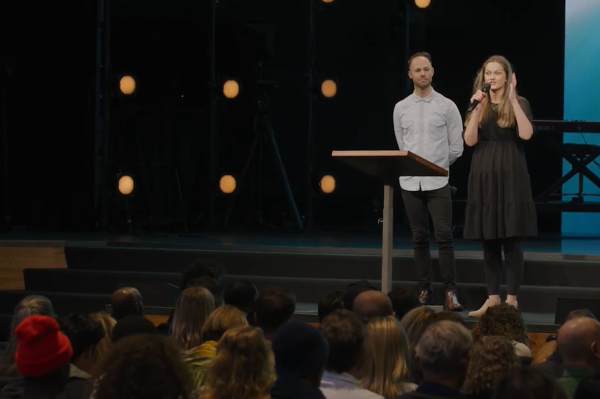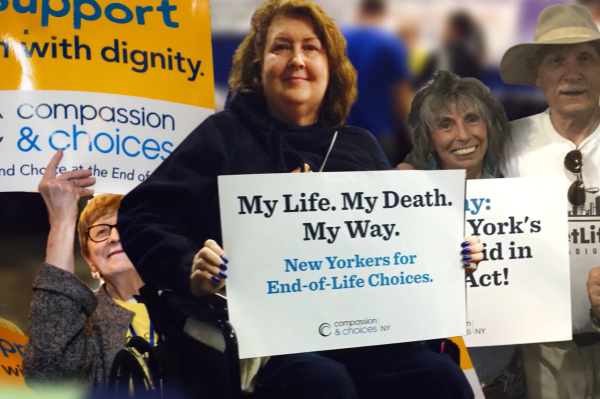Is a Catholic ‘charter school’ the answer?

Imagine my surprise when I found out that Oklahoma Attorney General Gentner Drummond was filing suit against the Oklahoma Statewide Virtual School Board and the St. Isidore of Seville Catholic Virtual School to stop the approval of a Roman Catholic charter school in Oklahoma.
Why am I surprised? First, a charter school is a “public” school funded by public tax money and must be open to serve students regardless of religious conviction. The Oklahoma Charter Schools Act requires charter schools to “be as equally free and open to all students as traditional public schools” and remain “nonsectarian in (their) …admission policies {and} employment practices.”
And yet, the Oklahoma Charter School Board approved the St. Isidore of Seville Virtual Catholic School as a public charter school. Furthermore, the St. Isidore of Seville Catholic Virtual School website identifies the school as “a collaborative effort between the Archdiocese of Oklahoma City and the Diocese of Tulsa to serve students in Oklahoma” and to provide “quality Catholic education” to students with limited access to a Catholic school.
Those are admirable goals for adherents of the Catholic faith, but they cannot be accomplished through a public school funded by public tax funds.
As Thomas Jefferson explained long ago in A Bill for Establishing Religious Freedom (1786) in Virginia:
“To compel a man to furnish contributions of money for the propagation of opinions which he disbelieves and abhors is sinful and tyrannical.”
Thomas Jefferson identified this bill for establishing religious freedom in Virginia along with the Declaration of Independence and the founding of the University of Virginia as the three things to be preserved on any memorial after his death.
If Catholics in Oklahoma want such a school, it must be funded by private money furnished by the supporters of such education. Let me be clear, I would oppose such a sectarian charter school if it were Baptist.
This leads me to my second surprise. That Oklahoma, the nation’s most thoroughly Baptist state, would approve such a school as St. Isidore is mindboggling to me. The Southern Baptist confessional statement, The Baptist Faith & Message, declares:
“Church and state should be separate. The state owes to every church protection and full freedom in the pursuit of its spiritual ends. In providing for such freedom no ecclesiastical group or denomination should be favored by the state more than others….The church should not resort to the civil power to carry on its work….The state has no right to impose taxes for the support of any form of religion. A free church in a free state is the Christian ideal….”
Clearly, Baptists in Oklahoma need to pay far more attention to their denomination’s glorious history of religious liberty.
In supporting the Attorney General’s defense of the U.S. Constitution’s First Amendment of religious liberty protections, I find myself in unaccustomed company. Among groups joining, or seeking to join, the Attorney General’s suit are the A.C.L.U., Americans United for Separation of Church and State, and the Freedom From Religion Foundation. It is highly unusual for me to be in common cause with such progressive groups. However, in this case, we are in agreement that American citizens should not be required to fund the propagation of the religious views of any religious faith.
I should hasten to add that I am not a big supporter of the present public education system in America. The decline in the academic performance of our students has been both steep and accelerating. Our nation’s children’s test scores compared to nations around the world have become mediocre at best.
As long ago as 1986, I was personally made aware of this disturbing decline. During a luncheon with one of my mentors, Dr. Paul Ramsey, a noted Princeton ethicist, I asked, “What is the biggest difference between Princeton now and when I was an undergraduate in the late 1960s?”
I fully expected he would reply, co-education, which occurred the semester after my graduation. Instead, without hesitation, Dr. Ramsey took a puff on his ever-present pipe, and replied, “the students now are not nearly as well prepared and they are clearly not accustomed to working as hard as you and your fellow students were. We’re still getting the top 5%, but they are markedly less well-prepared.”
That was 37 years ago, and standardized test scores have continued precipitous decline, especially in the top percentiles.
I am equally disturbed by the hijacking of American public education from its original role of educating in reading, writing and arithmetic and teaching students how to think, not what to think. At present, far too much of American education (K-12 and beyond) has become far more committed to teaching students what to think (the term “brainwashing” is not too harsh in many instances and areas of the country).
Just this past Wednesday, an article in The Wall Street Journal vividly illustrated the sad fruition of the combination of this educational decline and “woke” indoctrination. Dr. Ron Hassner, UCal (Berkeley) professor of political science polled students from across the nation, most of whom (86% at least to some degree) supported the chant, “From the river to the sea.”
However, only 47% could successfully identify the right river (the Jordan) or the sea (the Mediterranean). Less than 25% knew who Yasser Arafat was.
“In all, after learning a handful of basic facts about the Middle East, 67.8% of students went from supporting ‘from the river to the sea’ to rejecting the mantra. … Those who hope to encourage extremism depend on the political ignorance of their audiences. It is time for good teachers to join the frenzy and combat bias with good education.”
Lastly, any discussion of the Oklahoma charter school situation must include a clear distinction between public support of a charter school and the government providing parents with vouchers or tax credits to help underwrite their children’s education at a private school of their choice.
In 2002 the U.S. Supreme Court issued an extremely important decision, Zelman v. Simmons-Harris. In this case, the Court ruled that the state of Ohio could furnish vouchers to parents of children in failing public schools in Cleveland to help defray the costs of a private school education. When at least 4 out of 5 parents chose Catholic schools (they were cheap and close at hand), liberals challenged the law as favoring religion. The Supreme Court ruled that the vouchers were aid to parents, not schools, and if the parents chose to use that aid to help defray the costs at Catholic schools, that was constitutional. (By the way, the children leaving the failing public schools for Catholic schools improved their reading scores by an average of four grades in one academic year.)
The Zelman decision provides the constitutional answer to how to reform the nation’s schools and protect our nation’s children from progressive “woke” indoctrination. Zelman allows state governments to provide for universal choice in K-12 education by empowering parents through vouchers to underwrite alternative educational choices.
Parents would be free to send their children to Baptist, Catholic, Lutheran, Pentecostal, Buddhist, Islamic, or Darwinian schools of their choice. What could be more pluralistic or American?
One great byproduct would be the reformation of the public schools, which would, in order to compete, have to get back to basics and abandon progressive indoctrination.
Reforming our nation’s education of our children is very possible, but providing public funding for public schools, charter or otherwise, is emphatically not the answer.
Dr. Richard Land, BA (Princeton, magna cum laude); D.Phil. (Oxford); Th.M (New Orleans Seminary). Dr. Land served as President of Southern Evangelical Seminary from July 2013 until July 2021. Upon his retirement, he was honored as President Emeritus and he continues to serve as an Adjunct Professor of Theology & Ethics. Dr. Land previously served as President of the Southern Baptist Convention's Ethics & Religious Liberty Commission (1988-2013) where he was also honored as President Emeritus upon his retirement. Dr. Land has also served as an Executive Editor and columnist for The Christian Post since 2011.
Dr. Land explores many timely and critical topics in his daily radio feature, “Bringing Every Thought Captive,” and in his weekly column for CP.





















